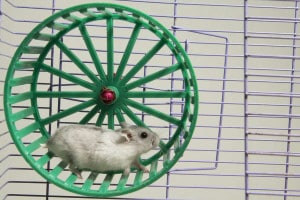Starting a small business often appeals to us in the second half of our lives. Not only are traditional jobs harder to get as one matures but we also want more freedom and the fun that come with being your own boss. But how do you start a successful small business?
Choosing a specific business to go into can be challenging. Here are some questions to help you decide upon a business that will keep you active and prosperous for as long as you choose.
5 Questions to Help You Choose a Successful Small Business
1. Ask the entrepreneurial question.
That question is: What good or service can I provide that people are willing and able to pay for? I have read whole books on how to start a business that never mentioned the potential customers. Yet customers are what every business needs. Make absolutely sure that there is a market of people who would not only like the good or service that you are thinking of providing, but also are willing and able to pay for it.
One prospective entrepreneur looked at the demographics and noted that there are and will be many seniors around (seniors = people older than we are!) She decided that a good business would be offering activities like lawn bowling and picnics to these oldsters. She did not check to see whether anyone would pay her to organize a picnic.
2. Can it generate earnings?
CIGE, or as experienced and successful small business people say, can it generate earnings? We have already made sure that there are customers. Now we want to see if we can make any money. Once we have determined what people are willing and able to pay for what we have to sell, can we keep the costs of providing it below the sales price so we can make some profit? Generating income is the difference between a business and a hobby and it is a business we are starting. We may not be planning on growing a company big enough to compete with Amazon, but we do want to be in the black.
If customers are the first consideration when choosing a business, costs are the second. Estimate all your costs. Don’t forget to include something for your own time. Do not follow this advice that one supposed expert gave to aspiring consultants. She suggested first deciding how much money you would like to earn; then determining how many hours or days you would like to work (allowing for generous sick days and vacations); then dividing the latter into the former to find out what rate you should charge for your time. She forgot to consider any other costs you might have or ask whether there was anyone who would pay that rate.
3. Good or service?
Think services first, especially professional services. Other small businesses can provide a ready market for services. A colleague was trying to decide on what business she should start. She wanted to get some financial advice and could not find anyone offering such assistance to start-ups. Knowing very personally that there was a market, she educated herself and opened a company offering this kind of service. That was decades ago. She is now one of the leading financial advisors on the North American continent.
As you will discover when planning for your own successful small business, many of the supports that are taken for granted in a large organization do not exist in small firms. You may have to look after IT, accounting, human resources, legal and other matters. In most cases, you will be able to find others to help you. Or you may decide, like my colleague, that you can do well by providing such services to others.
If you do decide to produce a good, make sure that it is quite unique and specialized. Fresh food is often a good choice as you will not be competing with offshore manufacturers from around the world.
4. Can I get staff?
Not long ago staffing a business was not a problem. Employers with a vacant position could pick and choose among many applicants. This is no longer true in North America and increasingly elsewhere. Even big companies are saying that job applicants now interview them rather than the other way around.
The lack of staff is not only an issue for new businesses. Existing businesses are closing for want of workers. Some, like coffee shops, have closed because they could not get basic service workers. Consultancies have closed when highly-skilled researchers were no longer available.
Decide what help you will need and make sure it is available before you proceed. Better yet, think of a small operation that you can manage without help at least initially.
5. Can I get capital?
You may not need capital. Many small businesses can be started with nothing more than a device with an Internet connection. This is an ideal situation. You have nothing to lose.
If you will need funds for equipment, supplies, premises or marketing, line it up in advance. You may be able to cover the costs yourself with savings or credit cards or get family or friends to help you out. Banks and traditional lenders often hesitate about funding start-ups. Protect yourself with a well-honed business plan, especially if you are using other people’s money.
Asking the right questions and finding the answers puts you on your way to a successful small business.
>READ: 5 TIPS FOR THRIVING IN YOUR SECOND CAREER
>READ: NOW WHAT? 7 WAYS TO THINK ABOUT YOUR SECOND ACT OPTIONS







